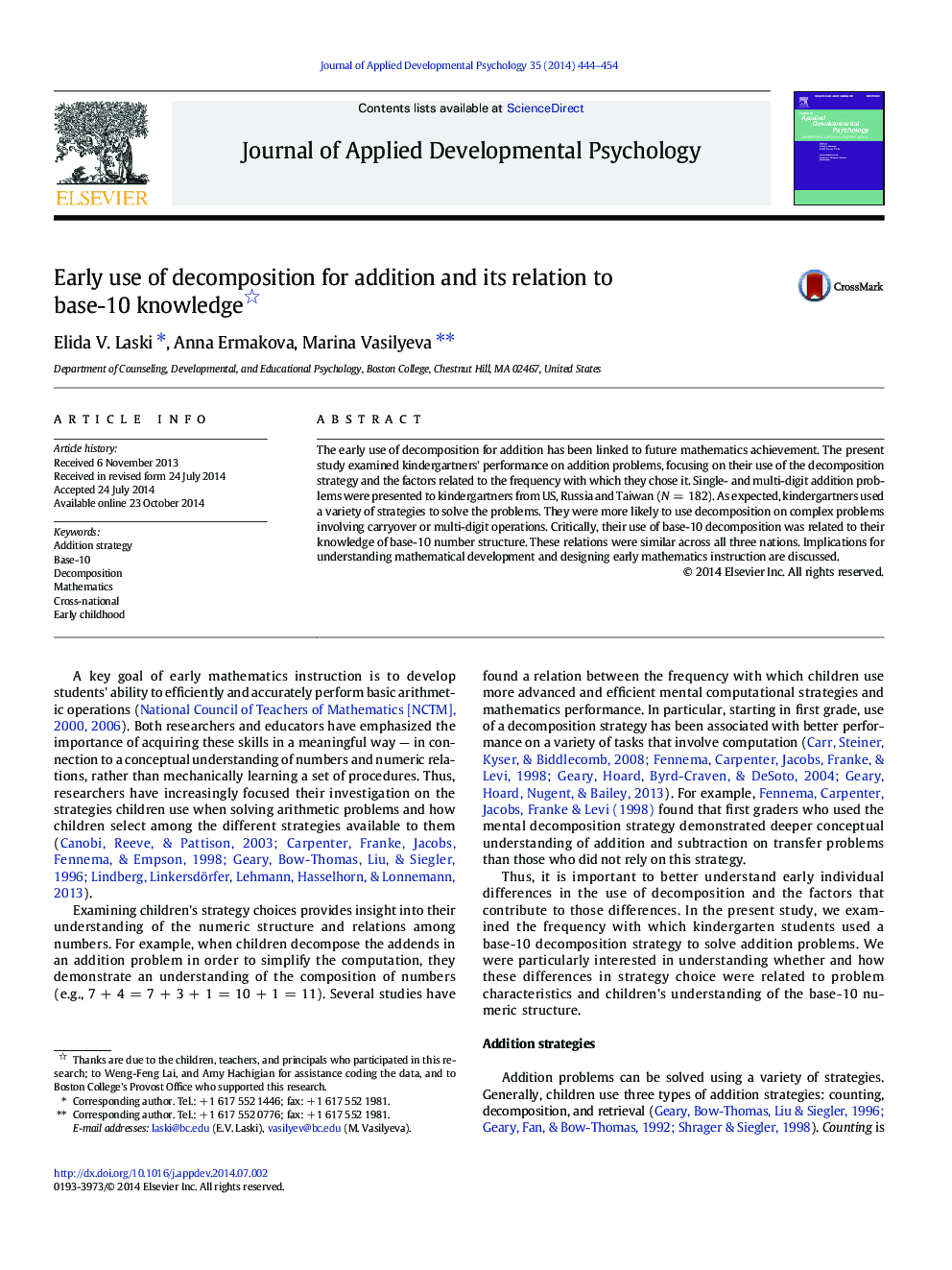| Article ID | Journal | Published Year | Pages | File Type |
|---|---|---|---|---|
| 359688 | Journal of Applied Developmental Psychology | 2014 | 11 Pages |
•Kindergartners from 3 countries solved single- and mixed-digit addition problems.•Knowledge of base-10 number structure predicted base-10 decomposition strategy use.•Problem difficulty predicted base-10 decomposition strategy use.•Frequency and predictors of base-10 decomposition did not vary by country.
The early use of decomposition for addition has been linked to future mathematics achievement. The present study examined kindergartners' performance on addition problems, focusing on their use of the decomposition strategy and the factors related to the frequency with which they chose it. Single- and multi-digit addition problems were presented to kindergartners from US, Russia and Taiwan (N = 182). As expected, kindergartners used a variety of strategies to solve the problems. They were more likely to use decomposition on complex problems involving carryover or multi-digit operations. Critically, their use of base-10 decomposition was related to their knowledge of base-10 number structure. These relations were similar across all three nations. Implications for understanding mathematical development and designing early mathematics instruction are discussed.
